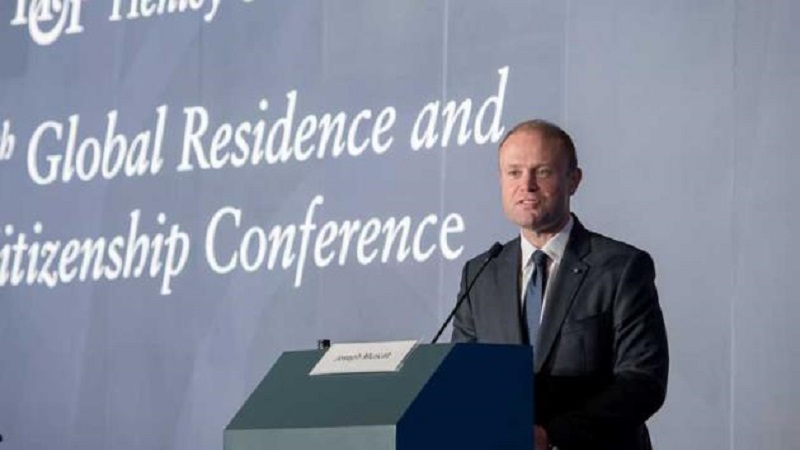The summary of the meeting Henley and Partners had with MEPs investigating the rule of law in Malta evidences the risks posed by cash-for-passports programmes and how Malta is effectively colonised by capital.
It is no surprise that citizenship by investment programmes are mainly offered by cash-strapped countries like Greece and small nation states with no natural resources such as Malta and a handful of Caribbean islands.
But access to national citizenship through investment is yet another tool which corrupts and distorts our democracy.
In November 2017, US lawyer and leading business intelligence chief Paul Vincent told The Shift News “I am generally uncomfortable with these programmes as I don’t like the commodification of citizenship and worry about the distortion of democracy… I am most certainly not in any way endorsing the programme in Malta.”
More than anything else, we are witnessing a new form of colonisation. Up to the Cold War countries physically occupied foreign territories mostly through military might. Now big multinationals jostle to occupy markets and countries try to outsmart each other to attract ‘investment’ and capital.
While in 1800, Malta voluntarily became a British protectorate after asking for help to get rid of the French, in more recent times Maltese governments introduced ‘avant-garde’ laws and courted shady companies and individuals to attract their money to our shores.
While previous PN administrations were heavily dependent on financial services, online gambling and a tax regime designed to attract tax dodging companies, Joseph Muscat’s Labour administration has surrendered energy sovereignty to Azerbaijan, sold public hospitals to a shady company whose owners remain unkown and created a dependency on the sale of passports which attracts tax evaders and money launderers.
In their meeting with MEPs, Henley and Partners said that they only sue Maltese journalists if they get the thumbs up by Joseph Muscat and his government. In a few words, the foreign masters do not want to upset the local governors who are essential for the flourishing of their business.
More tellingly they acknowledged that “in small countries like Malta, it is possible to approach a member of government quite informally. We have known them for a long time, and it is not possible to compare relations with the government of Malta to Germany or another big country.”
With the exception of Austria, Henley and Partners only offers citizenship programmes in small countries in Europe and the Caribbean, namely, Malta, Cyprus, Antigua and Barbuda, Grenada, St. Kitts and Nevis and St. Lucia.
Moreover, they claimed that Muscat and his government is under no obligation to promote the cash-for-passports programme.
Muscat himself had also denied that government members are contractually obliged to participate in Henley and Partners’ international conferences when quizzed by MEPs.
However, both Muscat and Henley and Partners’ claims are belies the contract tabled in Parliament in February 2015, which clearly states that government members are bound to promote the cash for passport programme at Henley’s regular roadshows around the world.
Article 7.4 of the agreement signed with Henley and Partners states that it is at the concessionaire’s own discretion that from time to time it organises, at its own cost and expense, conferences and events to professionally promote the IIP worldwide.
“The government will ensure to send, whenever requested by the concessionaire, appropriate high-ranking government representatives, or other senior government officials, to speak at the events and represent the Programme and the government,” the contract says.
Henley and Partners told MEPs that Muscat “only goes when he wants.”
So when the Prime Minister was in Dubai promoting the cash-for-passport programme a few hours after the assassination of Daphne Caruana Galizia and in Hong Kong on the day the European Parliament discussed a motion on the rule of law in Malta, was he there out of his own free will or was he obliged to be there?
Whatever the answer is, it exposes Muscat’s poor judgement. Either way, Muscat’s decision to implement a programme which foments “corruption, importation of organised crime and money laundering” only benefits the global rich, foreign and local agents and the Panama gang in Castille.
Charitable donations and housing projects funded by the cash-for-passports scheme might earn him plaudits at home but his short-sighted shenanigans are merely a distraction from the slow death of our democracy and sovereignty.
Dom Mintoff must be turning in his grave.












